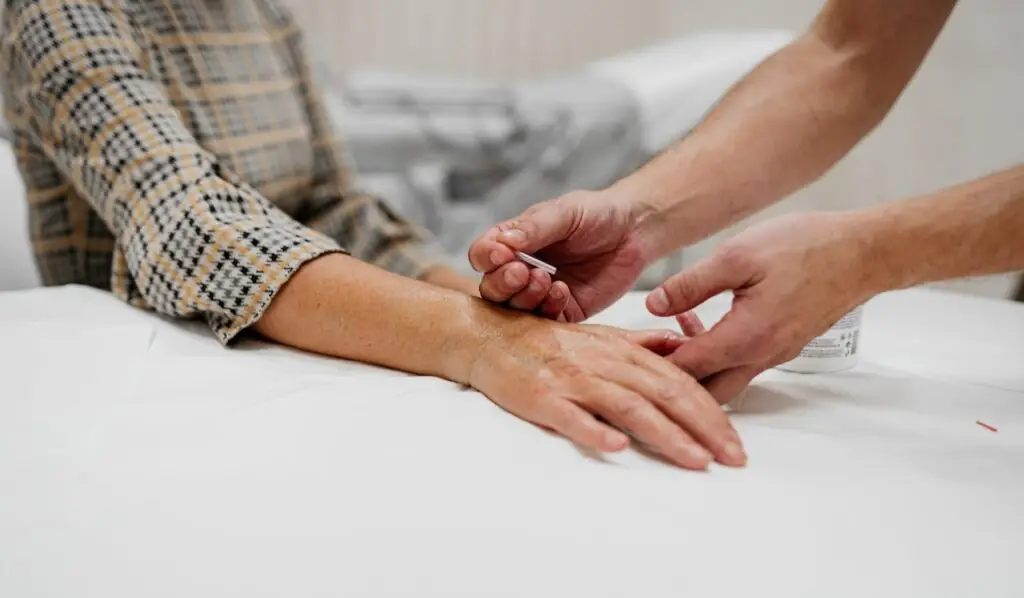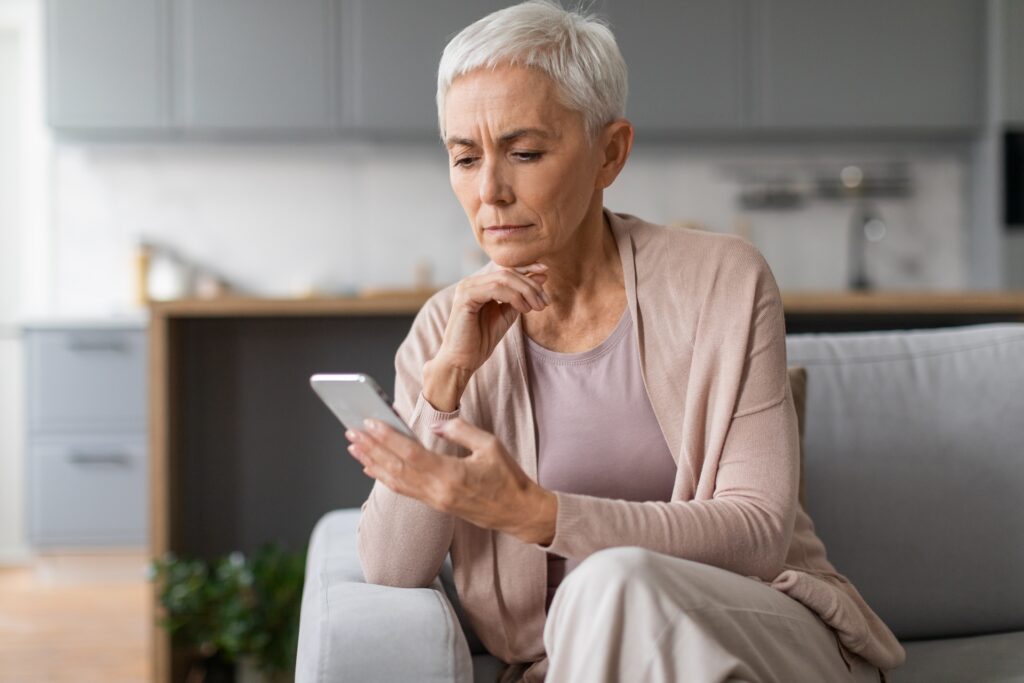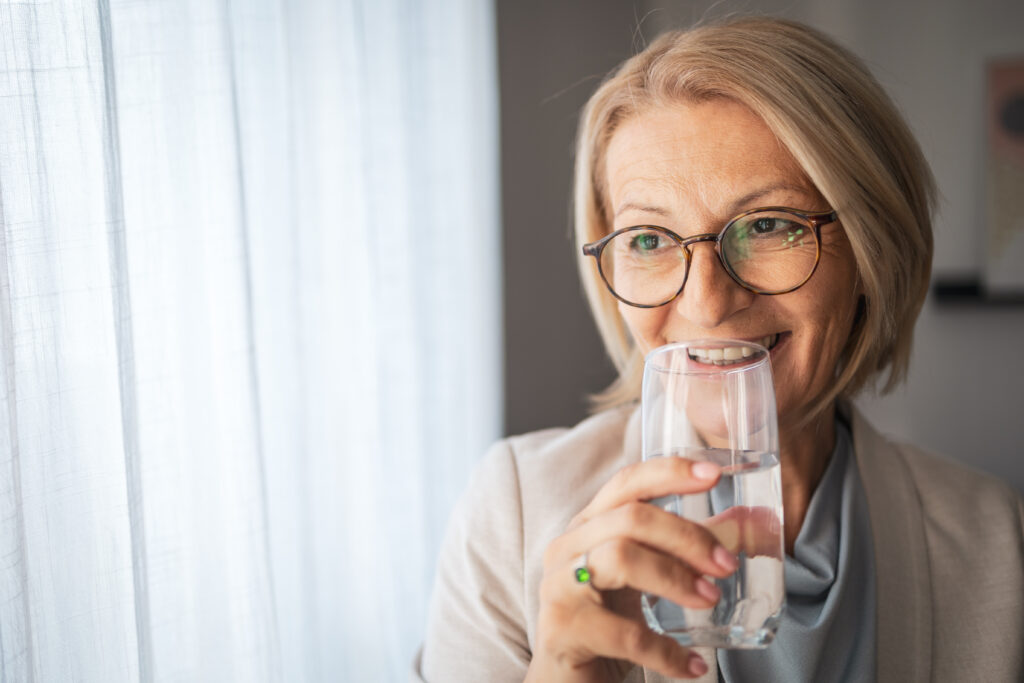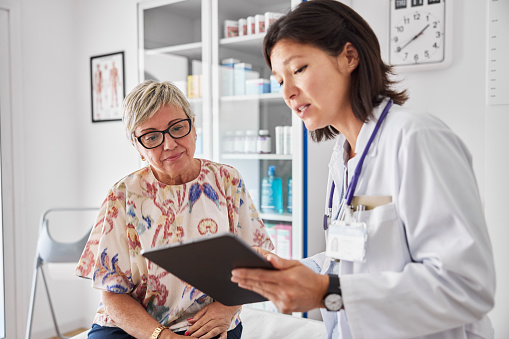Can acupuncture help with joint pain from aromatase inhibitors?
We recently spoke with City of Hope’s Dr. Krisstina Gowin to discuss how different integrative therapies can help enhance quality of life for people with cancer. We addressed some of the common community questions on breast cancer treatment side effects, clinical trials, and supplements in this Q&A transcribed from the webinar. You can watch the full webinar recording for an insightful conversation on integrative oncology below.
The following questions and responses have been lightly edited for grammatical purposes.
1) Are there integrative therapies that can help with joint pain and aches caused by Letrozole?
Letrozole is a hormonal therapy that is used to block estrogen and estrogen receptor-positive breast cancer. Letrozole is called an aromatase inhibitor and there are other ones out there. One of the side effects of this whole class of drugs will lead to something called arthralgia or joint pain in some proportion of women. It is really hard for some women to tolerate. We think of joints, aches, and pains as “Oh, I can push through that, perhaps,” but no. For many women, it really is a game changer in their quality of life and their ability to live their lives, that they stop taking the medicine.
Evidence-based guidance powered by NCCN Guidelines®
Personalized treatment plans shaped by the latest oncology standards—tailored to your diagnosis.
Get started
View your personalized treatment plan in the Outcomes4Me app
Use your diagnosis to unlock personalized NCCN Guidelines®-aligned recommendations.
Continue in app
Because of that, there was a very well-designed randomized phase III clinical trial for acupuncture in women taking aromatase inhibitors. I think this is one of our best-designed studies in integrative medicine. It clearly revealed that the women who were receiving acupuncture for 12 weeks, concurrently with their aromatase inhibitor, were able to stay on their therapy and had less pain. Every single woman I see who’s newly starting on an aromatase inhibitor or has been on it, and is exhibiting arthralgia, receives a referral to acupuncture. I always tell women to really give it a good trial. At least once a week for four weeks, although that’s much less than what the trial is. It can be financially expensive. Some insurances do cover it, but many do not. It is not covered by Medicare, so I think it can be a financial barrier, but it’s non-pharmacologic and the risk is very low. It seems to really help with the arthralgia.
I think acupuncture is helpful for many other things, such as nausea, fatigue, anxiety, depression, smoking cessation, and the list goes on. I would say, as an integrative medicine modality, in general, acupuncture is my go-to. Almost all my patients will receive a referral for acupuncture because I think it’s so beneficial.
2) What are your thoughts on supplements?
I think we have a long way to go to better understand supplements. We have some small trials, some retrospective trials, and epidemiologic trials. I think the most robust ones are probably for vitamin D. Vitamin D has been associated with inferior outcomes in many different kinds of cancer, particularly deficiency and outcomes. What we don’t know is, if we then replete it, are we achieving better outcomes? We don’t have strong answers for that. In general, I target normal or slightly above normal vitamin D levels in my clinic for all patients. I do test it in all my patients to ensure that vitamin D is adequate. So many of us are deficient, even if we’re in sunny places like California, so I think that’s a critical one.
If you’re not taking enough fish orally in your diet, then I think omega-3 fatty acids are one of the most potent anti-inflammatories that we have. That’s another supplement I recommend if there’s not enough dietary intake in regards to the guidelines. The only supplement that’s really hit the guidelines is American ginseng at 1,000 milligrams twice daily for the management of fatigue, which could be considered. The quality of evidence for that is still low, but there’s enough, at least, for us to hit the guidelines.
What we don’t want to do is cause harm with our supplements. What’s key to think about is where are you in your treatment trajectory? What are your goals? If you have, for example, a curable breast cancer and you’re on neoadjuvant chemotherapy, taking supplements in that setting and potentially interfering with chemotherapy is really a scary proposition. We don’t know a lot of the chemotherapeutic interactions. Some are presumably safer than others, and I always will have that risk-benefit discussion with patients one-on-one.
3) Where can I find integrative oncology clinical trials?
Whenever I’m looking for clinical trials for my patients, whether they’re integrative or non-integrative, I always go to clinicaltrials.gov. It’s a wonderful resource. It’s the one that regulates all of the trials within the nation. You can go in there and put the disease type and the kind of therapy you’re interested in. For example, even when I’m preparing for talks, I’ll go in there and say, “Okay, how many studies are ongoing right now looking at diet and multiple myeloma?” Then it will populate and you can choose which ones are actively recruiting and which ones are closed. You can curate it according to the location in the country, so it’s a wonderful site.
It does take a fair amount of work where you have to say exactly what disease and what sort of modality you’re interested in, whether it’s a diet, exercise, tai chi, or a particular supplement. The naming can be tricky because sometimes they’re called “novel intervention in survivorship using movement,” and you would miss that if you put “exercise” in your search word. You do have to play around a little bit with your words and choose some synonyms, but that’s the best resource.
You can also see your own breast cancer clinical trial matches directly within the Outcomes4Me app.
Integrative oncology resources
- Society for Integrative Oncology: Includes a tab with the pain, anxiety, depression, and fatigue guidelines mentioned in the webinar
- CancerChoices: Integrative oncology resource with a patient and caregiver focus
- Oncio: Free mindfulness-related practices
- Yoga Bridge: Free yoga programs for people with cancer
- Healing Works Foundation: Guided imagery meditation
For a breakdown of integrative oncology, read our webinar recap here.
Personalized support for real care decisions
Understand your diagnosis, explore clinical trials, and track symptoms--all in one place.
Get started
Compare treatments, prepare for appointments, and track side effects—all in the app
Built for your diagnosis, Outcomes4Me gives you the tools to make confident, informed decisions—right when you need them.
Continue in app






